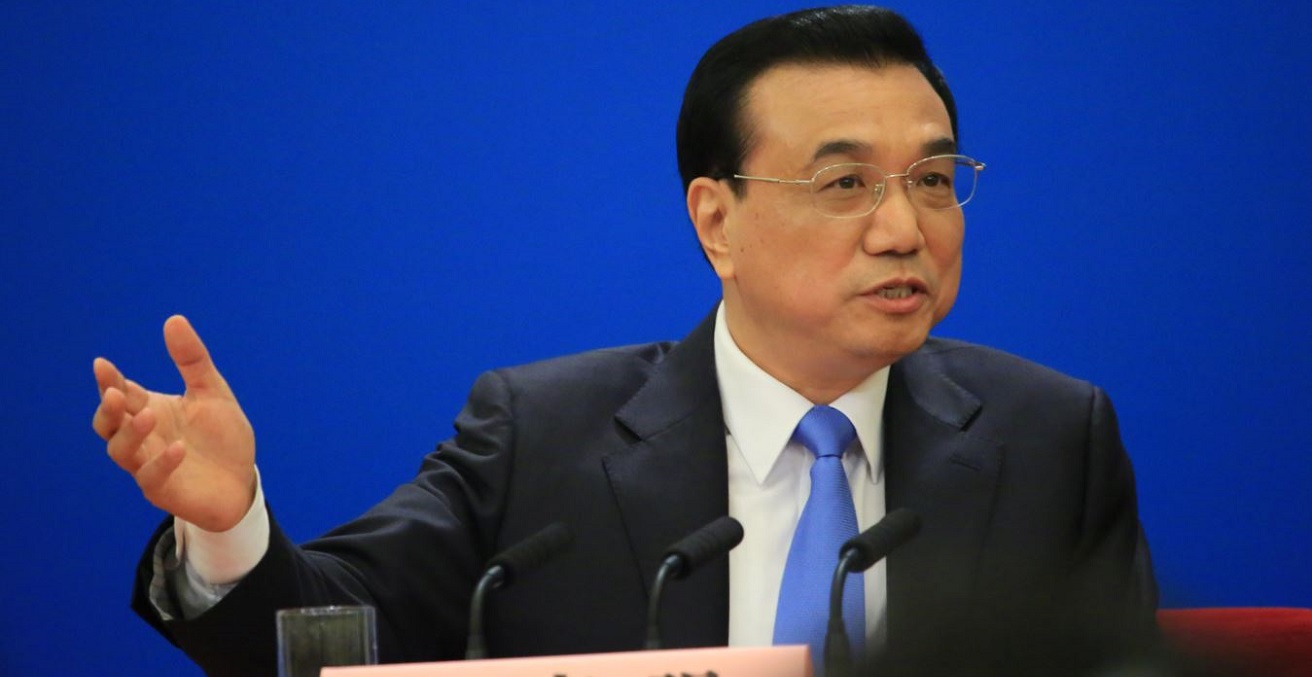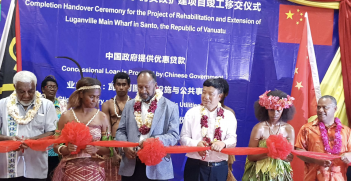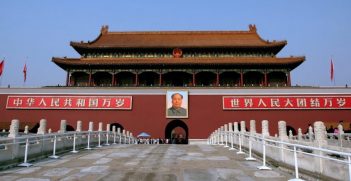How to Think About Australia’s Relationship with China

As China continues to surge towards the peak of the international system, Australia’s policy strategy requires consistency and strength to match the soon-to-be superpower.
Each year, Australia and China conduct a high-level dialogue, bringing together a cross section of senior officials, business people and civil society leaders. At the 2016 meeting, held in November in Beijing, the Chinese pressed for a qualitative intensification of the bilateral relationship. They argued that this would be a sensible response to the new major global uncertainties reflected in Brexit and Donald Trump’s success in the US. Australia was urged to treat China as more than a business partner and encouraged to deepen mutual political trust.
More recently, on a visit to Australia in March this year, China’s Premier Li Keqiang warned Australia not to take sides as tensions in the US–China relationship deepened. He added that China would stay out of Australia’s affairs if such a policy was reciprocated, placing Australia in a tricky position.
President Trump certainly has the potential to cause Australians to become more questioning of the US alliance, but the US will remain Australia’s first preference when facing the extreme scenario that sees the use, or threat of use, of military force against Australia.
Premier Li’s further proposal that each country recognise and accept the other’s sphere of interest and influence is similarly fraught: China is a mega-state that aspires to a correspondingly global strategic footprint. To accept such advice would be tantamount to declaring neutrality on all the issues that will determine the character of the region of the world that is a primary interest to Australia.
China is a great power—indeed, a likely future superpower. What is the harm if it values stronger and deeper relations with us? Such questions are not that simple.
Firstly, China does not do muddling through. Secondly, China is again utterly committed to regaining its top ranking in the international community, which means both making China stronger and eroding the strength and standing of rivals—above all, the US. Is Australia ready and able to travel down this road?
Implicit in the answers to these questions is how much control over the process Australia is likely to have and whether anything can be done to strengthen Australia’s leverage. Of course, Australia does have leverage. A sovereign nation that can decide whether other nations are close partners, good friends, just friends or mere associates in trade and investment.
China’s history is telling in this regard. Ancient China never had close friends or partners, or recognised equivalent communities or states. If Australia is to prosper in China’s immediate neighborhood, it will need to be not only hard-nosed and clear-eyed about its interests, but also consistent and far-sighted in the assessments made to chart policy moving forward.
Australia has had five prime ministers in the last decade and all of them put together would have spent an alarmingly small number of days thinking about how the nation should be trying to position itself in the evolving Indo-Pacific community of states, and even fewer doing anything deliberate to manoeuvre towards that position. China is the antithesis of this state of affairs. It is fully and continuously engaged in focusing its capacities to advance the interests of the Chinese Communist Party (CCP) and of China; it is an authoritarian state with capacities readily to hand that are vast and diverse.
China has become very large and strong very quickly. A country that was scarcely visible three or four decades ago is now ranked alongside the US in a group of two. The US is still the only global superpower, but China is still growing and transforming quickly. This alone would have made it a testing policy issue for most countries.
In addition, however, China has a number of distinguishing characteristics that, collectively, sharply intensify the policy dilemmas it presents for others in the international community. These characteristics need to be consciously borne in mind when assessing China’s behavior and in developing policy settings towards it.
Firstly, engaging the nationals of another country involves working through a number of barriers—most notably, language, culture, distinctive processes and distinctive historical experiences—to arrive at the most accurate possible interpretation of what they are saying and feeling in their dealings with you. Diplomats, in particular, are expected to find ways to essentially eliminate these barriers and to develop a nuanced and textured understanding of their hosts and how they do business. The reality, however, is China has no interest in a level playing field, in dealing with other states as equals or in the notion of a fair go. China imposes and defends relationships with all other countries that are structurally tilted in its favour.
Secondly, the CCP aspires to manage the public’s information base as a key building block, alongside vigilant censorship and close management of the media, towards shaping attitudes to domestic and external developments and events, and ensuring favourable public assessments of the government’s foreign policy.
Thirdly, the CCP has an irreducible legitimacy deficit. It took power by force 70 years ago and has not since entertained the possibility of asking China’s citizens for their opinion. This has profound consequences. The state aspires earnestly to be successful and meet the needs of its citizens.
For Australia, these circumstances constitute an exquisite policy dilemma. China is already our largest trading partner, and the relationship is destined to grow in all dimensions. Furthermore, within a decade or two at the most, China will be unambiguously the largest economy in the world. How does Australia clearly signal the reservations that attend our dealings with China without sparking its unilateral capacity and preparedness in some circumstances to inflict coercive economic pain?
There is not yet a complete answer, however, there are several components of an answer that are likely to be indispensable. Firstly, Australia needs to make clear why the absence of a level playing field precludes the comfort and ease associated with any kind of special relationship between two countries.
It is crucial that Australia go to the trouble (and cost) of always being extremely well informed about China’s internal practices. Equally, it is important that the government of China be aware of Australia’s interest and determination to acquire such information. It is only smart to make clear that Australia has the material to make and to document its point more bluntly if it chooses to do so.
Finally, the key characteristic of Australia’s policy setting on China should be consistency. Avoiding both expressing reservations sporadically and in strong language, Australia’s objective should be a consistent and measured posture. Suppressing concerns is unwise as China is likely to make presumptions about the next stage in the bilateral relationship that Australia does not share.
Unlike the other major powers, China has surged to the peak of the international system several times over the past 2,500 years. The world is at the opening stages of a new phase of history characterised by the sense of opportunity and trepidation associated with the re-emergence of China.
For Australia, of course, it is our first time. There needs to be trouble taken to make a sensible judgment about the nation’s posture towards China. Australia also needs all the friends it can get, which means, in particular, being prepared to be more front-footed, creative and energetic in deepening relationships with other states in the Asian neighbourhood.
Dr Ronald Huisken is a senior fellow at the Strategic & Defence Studies Centre, School of International, Political & Strategic Studies at the Australian National University.
This article is an edited extract from an article published in the Australian Journal of International Affairs on 10 August 2017. It may be accessed in its unabridged form here.





